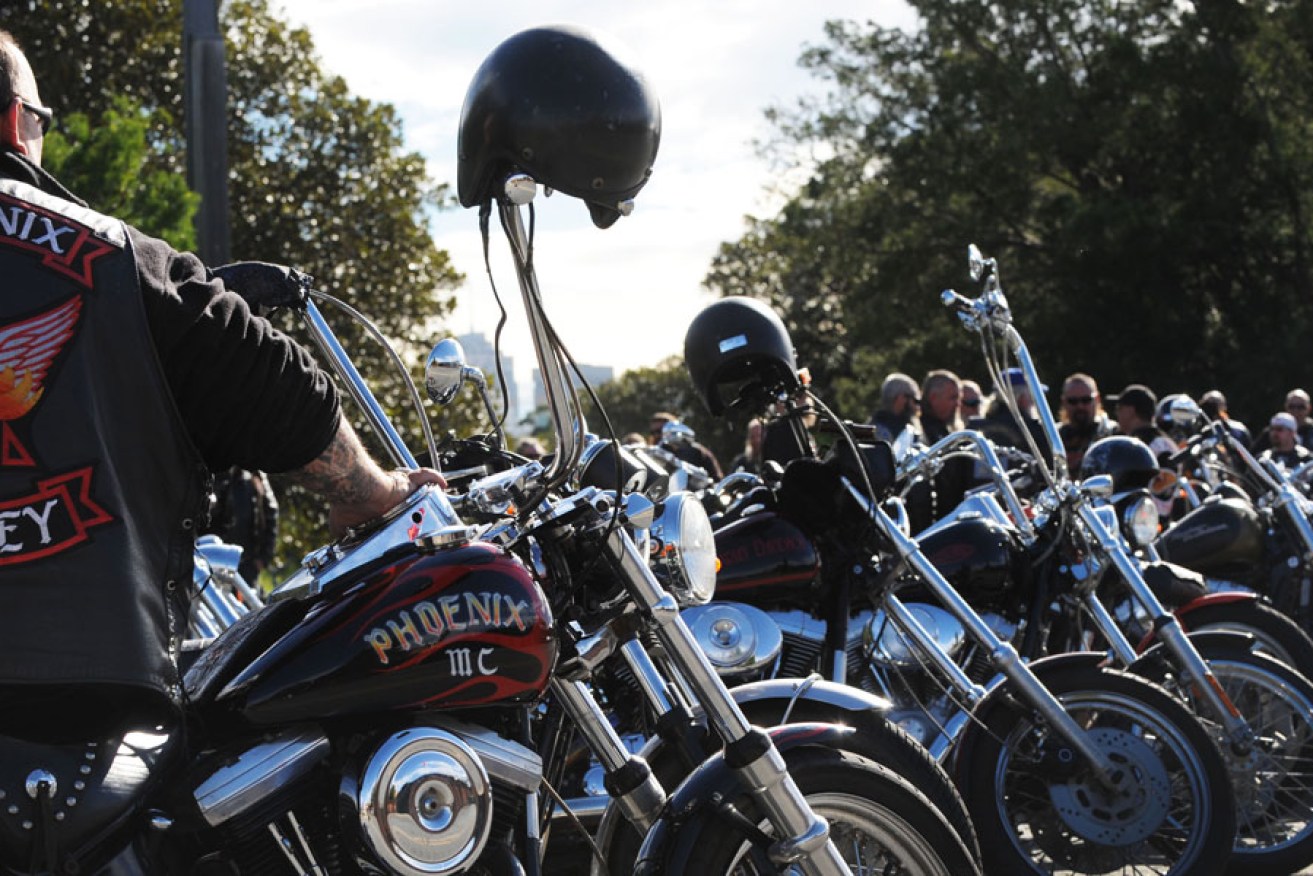The State Government has been slammed for rushing anti-bikie laws through parliament late last week, just months before three parliamentary inquiries into organised crime legislation are due to be completed.
Under the new laws 10 bikie clubs will be prohibited from recruiting new members, meeting together in public, or entering bars wearing club colours or logos.
The list of targeted clubs includes the Comancheros gang allegedly involved in the violent assault of a man in the foyer of Yatala Prison last Monday, as well as the Finks, five members of which were on Friday sentenced for up to 15 years’ jail over charges of aggravated assault causing serious harm with intent to a fellow gang member.
A South Australian parliamentary committee inquiry into organised crime legislation is currently underway, as are two separate inquiries related to the Queensland anti-bikie laws passed in 2013 that inspired the SA legislation.
Gold Coast-based Bond University criminology professor Terry Goldsworthy savaged the South Australian Government for acting before these reviews were complete.
“Why any government wouldn’t wait to see the results of these inquiries is beyond me,” he told InDaily.
“It reeks of ineptitude.”
Goldsworthy said one of the two Queensland inquiries was specifically targeted at the state’s anti-bikie laws while the other is taking a broader look at organised crime legislation.
The Queensland Labor government initiated the review into the anti-bikie legislative regime after winning office earlier in the year promising reform of the controversial laws.
Having previously worked as a detective-inspector for more than two decades, Goldsworthy said he was not naïve to the criminal activity undertaken by bikie gangs, but noted that while the laws restricting the association of such clubs had been in place for over two years in Queensland, no-one had yet been successfully convicted.
“Yes, it’s stopped bikies going around in their colours, but how does it stop organised crime –they don’t have to meet in a café, they can meet in their houses,” he said.
Goldsworthy said if South Australia was to copy Queensland, it should instead look to the Sunshine State’s increased resourcing of police departments, which he claimed had been far more effective.
South Australian Attorney General John Rau told InDaily that the anti-bikie legislation had to be passed last week as another opportunity would not present itself for some time.
“The SA Police made it clear they wanted these laws and I undertook to pass them as quickly as possible, in the interests of community safety,” he said.
“(Thursday last week) was the last sitting day before the winter break and parliament resumes again in September.”
Both houses of the South Australian parliament passed the legislation after the Labor government secured support from the Liberal opposition by removing interstate and overseas gangs from the list of targeted clubs, taking the total number of clubs affected by the laws from 27 to 10.
In the Legislative Council the only member of the two major parties to vote against the bill was Liberal MLC Andrew McLachlan, who crossed the floor to join two Greens members and Dignity for Disability’s Kelly Vincent.
McLachlan, who is part of the Crime and Public Integrity Policy Committee currently inquiring into organised crime legislation in South Australia, said he was frustrated that the laws had been passed before the committee had finished its investigation.
He described the situation to InDaily as “wedge politics”.
In his speech to Parliament on Thursday, McLachlan said the laws represented a dismantling of “the fundamental principles of criminal justice”, by turning parliament into a judiciary and creating a crime of guilt by association rather than guilt of a specific offence.
“Parliament is being asked to act like a court, but no evidence has been formally presented, there is no testing of the evidence and there is no opportunity for the organisations named to respond,” he said.
He expressed particular dismay in the police executive’s support for the anti-bikie laws, describing their behaviour as like that of “lobbyists”.
“It should concern every member of this chamber that we have a police force that has a culture of believing that judicial review is an encumbrance,” he said.
“What has become clear to me is that there needs to be an urgent cultural review of the police and its executive team.”
The laws could come into force as soon as the end of this week.





